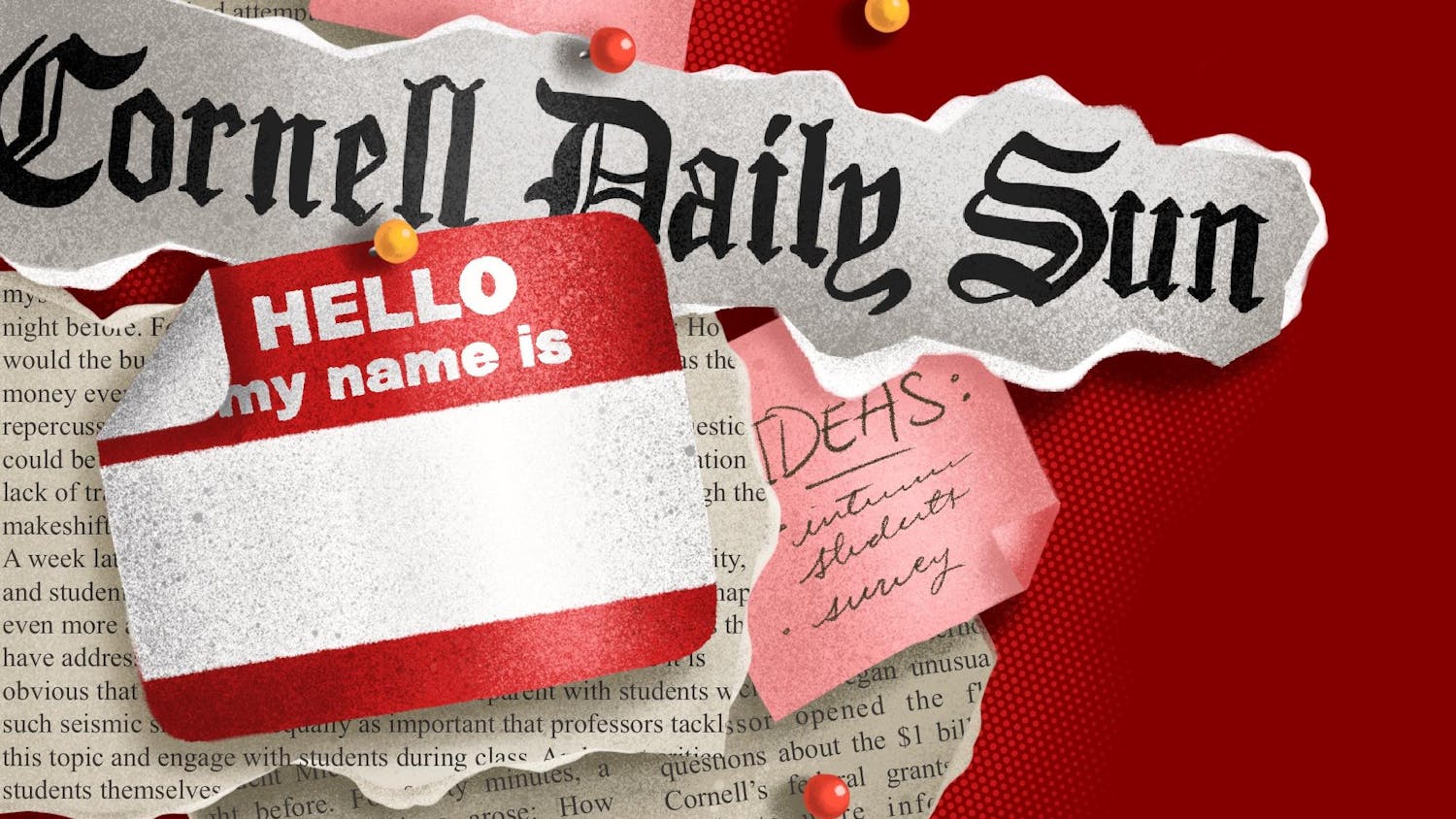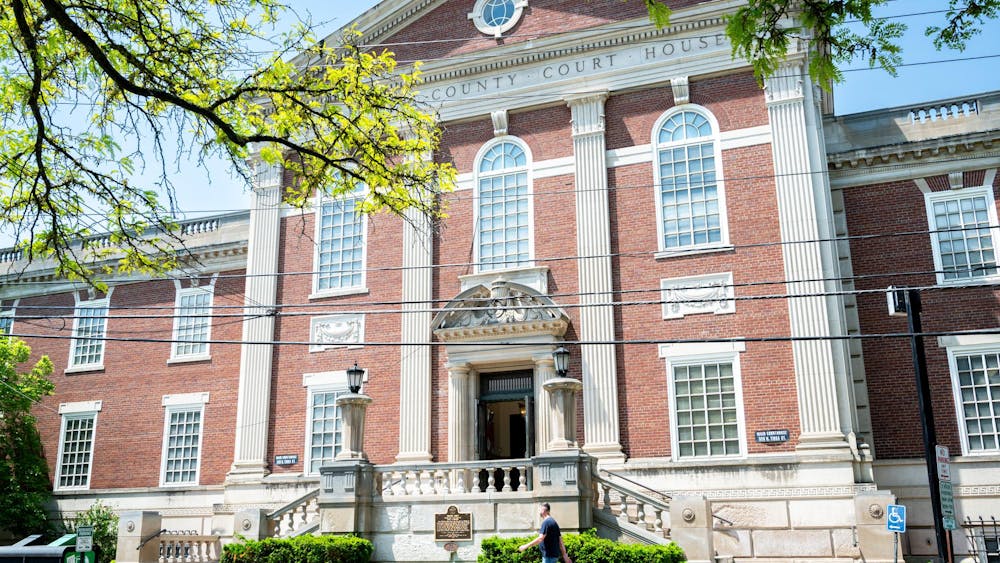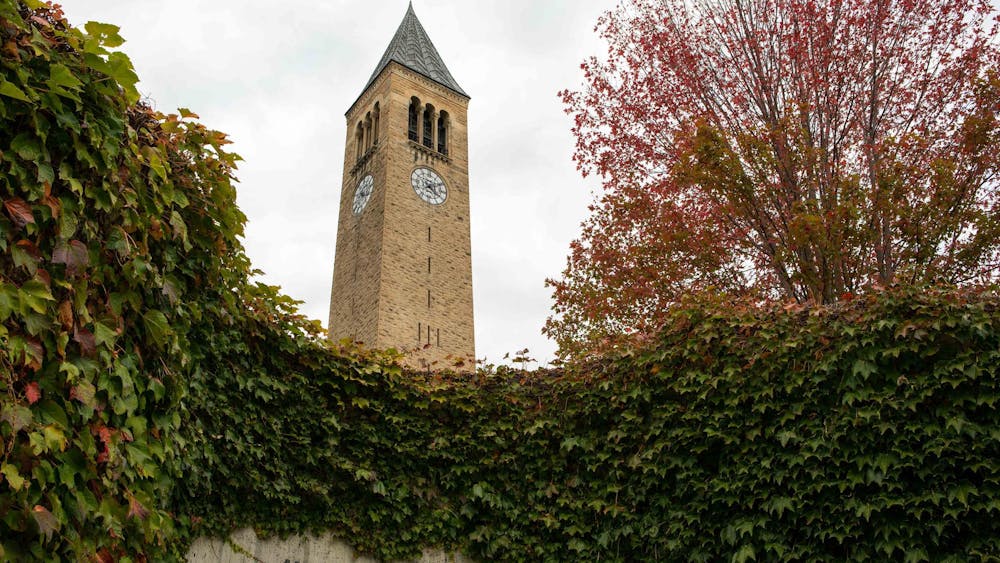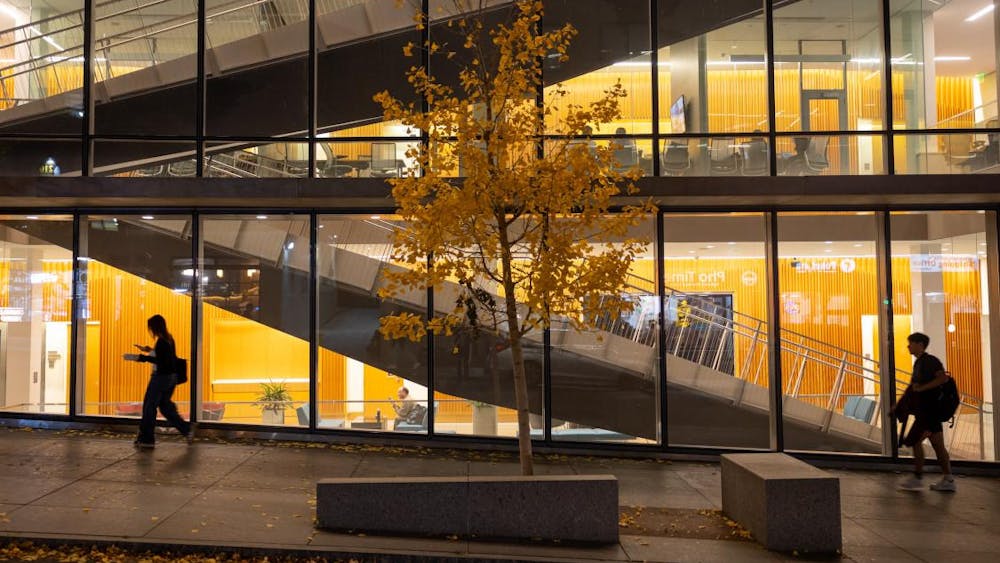The Trump administration froze $1 billion in funding for Cornell “amid civil rights investigations,” presumably related to the administration's crackdown on alleged antisemitism on college campuses. Not to alarm anyone, but professors have been overheard quoting former Sen. Dirksen (R-Ill.), “a billion here, a billion there, and pretty soon you’re talking real money.”
Legal experts have already pointed out the freeze’s blatant illegality. But Trump is not selling legality. I don’t want to focus on the procedural faults in the president’s actions. I want to speak to his corruption of the free speech ideals that define this country. So let’s focus on something more interesting, and perhaps more elusive, than the legal doctrine of Title VI or the First Amendment. Let’s talk frankly about free speech as an ideal. Free speech, not as a favor granted by the state, but asserted as an inalienable right against it. It is messy, unintuitive, unsatisfying and — according to the founders of our country — so essential to liberty that “whoever would overthrow the Liberty of a Nation, must begin by subduing the Freeness of Speech.”
It is a natural human response to see reprehensible speech as a greater evil than suppression of said speech. Even self-described supporters of free speech may balk when they perceive certain speech as harmful. Let me be very clear: I do not want any of my fellow students to be harassed on campus. But, if Sen. Marco Rubio (R-F.L) shares this desire, then I believe his tactics are ill-advised. That is to say, not only do I doubt that the government is truthfully representing its goals, I also do not think that the means they are using will further those goals. The use of official power to shut down dissenting opinions, on the basis that they are “hateful,” “harmful” or “insensitive” was, until recently, a tactic most commonly pejoratively associated with the left and elite universities like Cornell. Now, evidently, that same logic of punishing speech seen as hateful has been embraced wholesale by the right.
One begins to suspect that the Trump administration has not quite “restored freedom of speech and ended federal censorship,” except perhaps for ideas it agrees with. Justice Holmes, writing in dissent, once observed, “if there is any [bedrock] principle of the Constitution… it is the principle of free thought — not free thought for those who agree with us, but freedom for the thought that we hate.”
America’s flag, “a symbol of freedom, of equal opportunity, of religious tolerance and of good will” can be burned because “[free speech] may indeed best serve its high purpose when it … stirs people to anger.” An ordinance banning cross-burning for the purpose of intimidating African-Americans is unconstitutional because it “imposes special prohibitions on those speakers who express views on disfavored subjects.” America’s students, citizens or not, must be free to voice minority opinions. Especially the opinions that many feel a knee-jerk response to suppress. The ideal of free speech asks us to delay precisely that impulse. That principle ought to weigh heavily on the minds of those watching as international students are detained by federal authorities for writing op-eds critical of Israel.
We decided long ago in this country that disagreement with America’s wars was protected by the ideals of the First Amendment. No doubt passionate political rhetoric on campus may cause arguments or even public disturbances. “But our Constitution says we must take this risk.” To argue, as the self-styled “America First” party now does, that free speech values are inapplicable to those protesting foreign countries’ wars is something sinister, worse than customary political hypocrisy. An America where dissent bubbles under the surface may seem, to some, more peaceful. But those who would trade an essential liberty for temporary safety deserve neither.
It ought to be enough to show that these crackdowns infringe upon the right of international students to voice their beliefs. But for those who are inclined to ignore the repression of unpopular ideas, so long as it affects merely non-citizens, remember that free speech ideals protect not only the speaker’s right to say their piece, but also the listener’s right to hear it said. Justice Thurgood Marshall, dissenting, once held that the government’s refusal to admit an international scholar to the country for an academic conference due to his political views violated American citizens’ First Amendment rights to “hear, as well as speak.” Oppression of non-citizens’ free speech, therefore, is oppression of citizens' free speech.
An administration that uses charges of antisemitism to justify its crackdown on the institutions that it despises and the rule of law makes society less safe for our Jewish brothers and sisters here in America, not more. “The right to freedom of thought and expression are essential safeguards for everyone, but especially so for members of groups whose ideas or practices don’t always align with the mainstream.”
We learn in law school that people are responsible for the natural and probable consequences of their actions. One can only conclude from how these deportations have been carried out, i.e., with gleeful malice, that America’s leaders intend for those who disagree with the administration on Middle East policy to self-police, to self-censor and err on the side of caution. And even if, as one immigration judge recently ruled, Marco Rubio has the de facto power to create this chilling effect by expelling individuals from the country whose politics he disagrees with, he lacks the moral right to do so. Our government is one of enumerated powers. The power to control unpopular opinions has never been one of them.
So let this be a terrible indictment of the path our country is taking: Were I not a citizen, I would be foolish to publish this disagreement with the government’s illegal actions. Given this administration’s scouring of dissenting social media posts for those seeking green cards, or citizenship, publishing an article like this would have imperiled my future in this country. But this only means that those of us who still have a voice to speak owe a moral duty to those who do not. We must unapologetically, loudly and with moral clarity, resist this imposition on America's ideals. The cost of such freedom may be discomfort. But the cost of silence is incalculable.
The Cornell Daily Sun is interested in publishing a broad and diverse set of content from the Cornell and greater Ithaca community. We want to hear what you have to say about this topic or any of our pieces. Here are some guidelines on how to submit. And here’s our email: associate-editor@cornellsun.com.
Liam Harney is a second-year student at Cornell Law School. His column "Objection!" discusses contemporary legal and political issues through a critical lens. He spent last summer working at the Louisiana Capital Assistance Center in New Orleans and will be spending next summer interning at the Legal Aid Society’s Criminal Appeals Division in New York City. He can be reached at ldh55@cornell.edu.











